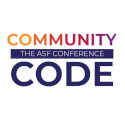Authorizers
Introduction
An Authorizer checks if an Identity is authorized to invoke a certain request.
The DelegatingAuthorizerAction tries to
resolve an AccessController for the URL. If an AccessController
could be resolved, its authorize(Request) method is used to authorize the request.
If no AccessController could be found, the access to the request
is granted for free.
The DefaultAccessController delegates the authorization to its
Authorizers. Only when all Authorizers return true,
the request is authorized.
PolicyAuthorizer
A PolicyAuthorizer uses Policies for authorizing. It returns true,
when the current Identity has at least one Role for the requested URL.
UsecaseAuthorizer
This Authorizer looks for the lenya.usecase request
parameter and checks the usecase policy file for the Roles that are
allowed to execute this usecase. The location of this file is defined
using the configuration parameter which points to a URL:
<authorizer type="usecase">
<parameter name="configuration"
value="context:///lenya/pubs/mypub/config/ac/usecase-policies.xml"/>
</authorizer>
The usecase policy file might look as follows:
<?xml version="1.0"?>
<usecases xmlns="http://apache.org/cocoon/lenya/ac/1.0">
<usecase id="create">
<role id="editor"/>
</usecase>
<usecase id="rename">
<role id="editor"/>
</usecase>
</usecases>
WorkflowAuthorizer
The WorkflowAuthorizer is responsible for protecting workflow transitions. Therefore it
- looks for the
lenya.eventrequest parameter, - determines the current state of the workflow instance, and
- checks if the event may be invoked by one of the current Roles in this state.
The WorkflowAuthorizer has no configuration options:
<authorizer type="workflow"/>


